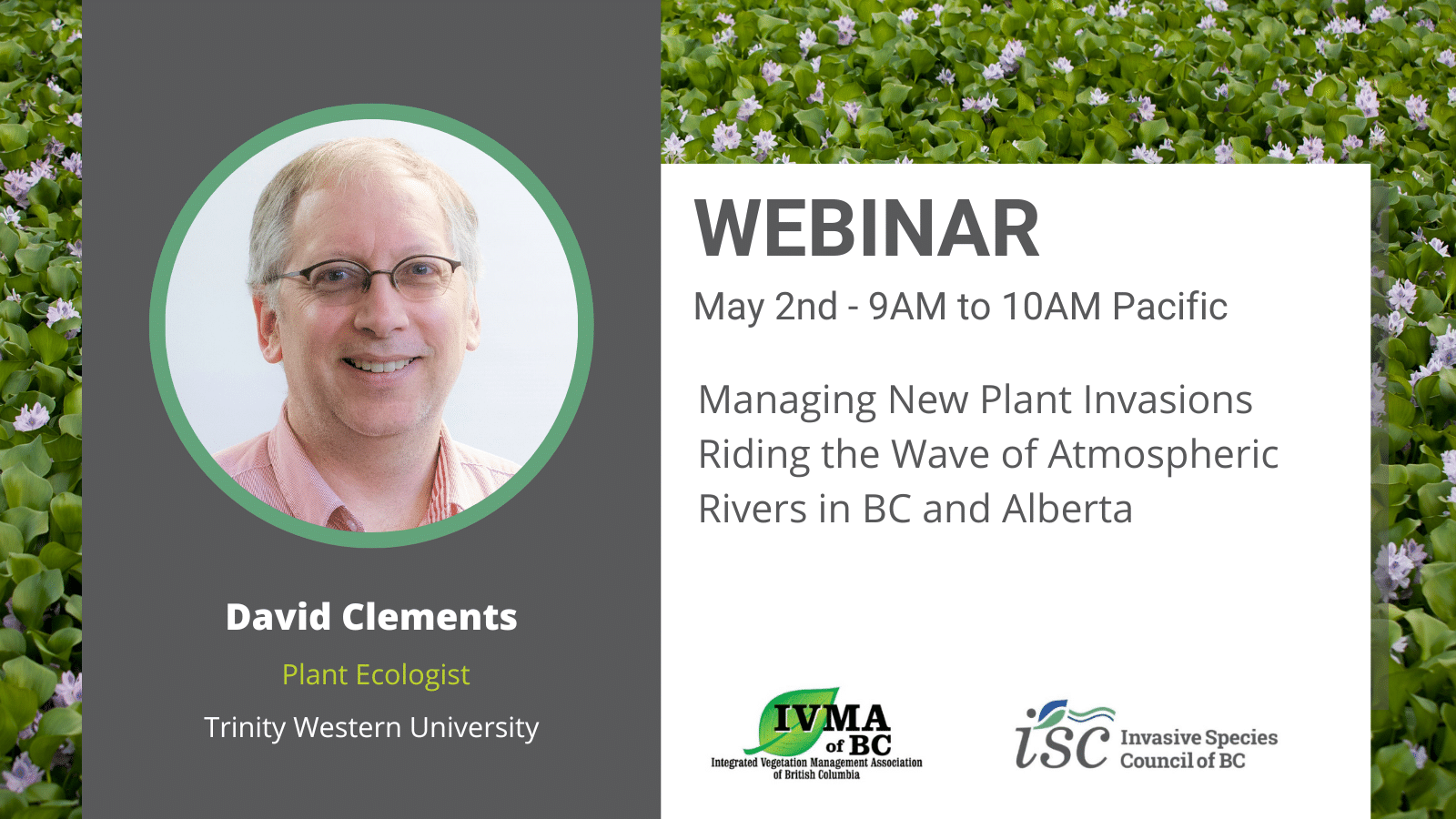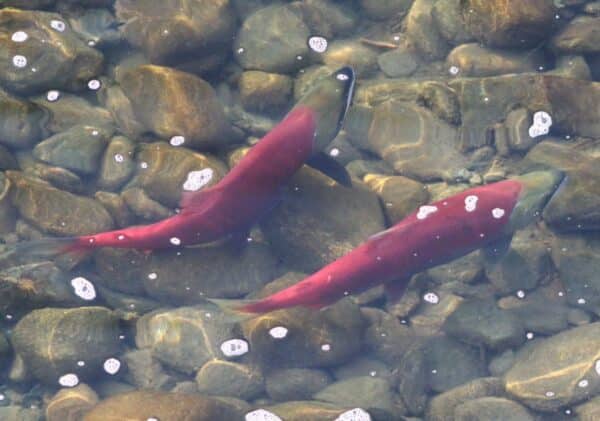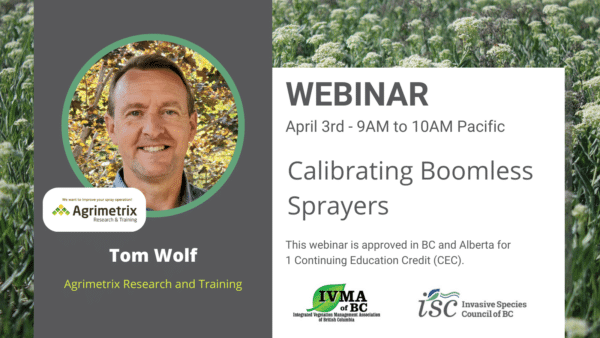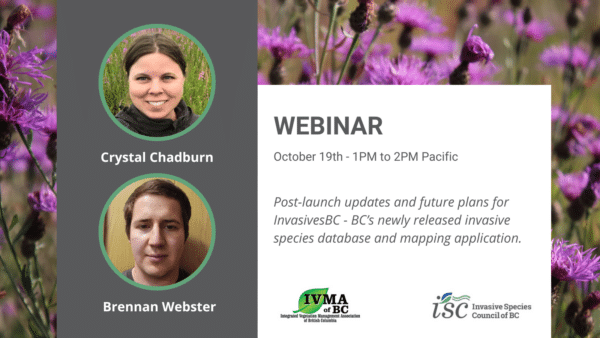Climate change predictions for the Pacific Northwest region of North America include both warmer and more unpredictable weather, such as extreme flooding events. The predicted increase in atmospheric rivers in the Pacific Northwest region favours many invasive plant species adapted to dispersing or reproducing under such conditions, as my research team has been monitoring for knotweed spp. in response to the extreme flooding in November 2021 in BC.
This presentation will look at factors predicting plant invasions with increased flooding, within a framework incorporating climate dynamics, ecosystem resistance, and invader fitness. I will discuss the implications of increased flooding for aquatic and riparian species, namely water hyacinth (Pontederia crassipes), water lettuce (Pistia stratiotes), floating heart (Nymphoides peltatum), parrot feather (Myriophyllum aquaticum), flowering rush (Butomus umbellatus), Phragmites (Phragmites australis), giant reed (Arundo donax), Himalayan balsam (Impatiens glandulifera), Buddleia (Buddleia davidii), and knotweeds (Reynoutria spp.).
Better monitoring of aquatic sites is needed as aquatic and riparian species have frequently gone undetected for years and may increase dramatically in the absence of a rapid management response. Rapid control responses are difficult in aquatic habitats in BC and Alberta because chemical control options are limited. As well as increased vigilance and the development of additional management options, ultimately the goal should be to increase ecosystem resistance to help prevent large scale invasions that have been recorded for many of these species, in this region and other places around the globe.
About the presenter:
David Clements is a plant ecologist based at Trinity Western University in Langley, BC, Canada. His research on invasive riparian plants, Garry oak ecosystems and climate change has yielded more than 80 scientific publications. He manages TWU’s field research sites: the Ecosystem Study Area, the Blaauw Eco Forest and the Crow’s Nest Ecological Research Area on Salt Spring Island. As well as teaching ecological courses on the TWU campus, he teaches field courses on Salt Spring Island and Hawaii. In 2022 he published two edited books, Persistence Strategies of Weeds and Global Plant Invasions, and is one of the editors of the new Biology of Invasive Plants series in Invasive Plant Science and Management. He also edits a series on invasive species for Pacific Science which he helped initiate in 2007. He is actively involved in local stewardship groups and writes the Green Beat column for the Langley Advance Times newspaper.
This webinar is approved in British Columbia and Alberta for 1 Continuing Education Credit (CEC) in the Pest Management category. To qualify for the CEC credit, you must attend the webinar for one hour and answer the quiz at the end. Please contact IVMA or BC with any questions or comments.
This webinar is co-hosted by:

Share





